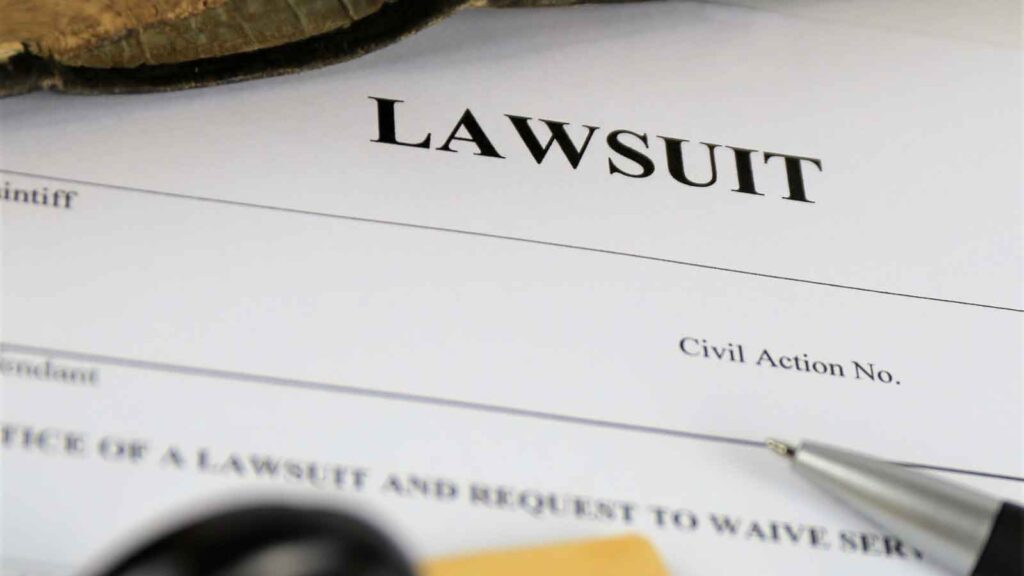
A lawsuit can feel overwhelming. You may be worried about financial losses, damage to your reputation, or how this will impact daily operations. Legal battles are time-consuming and stressful, and mishandling it can put your company at serious risk. It is also an obvious implication that ignoring the problem or responding too quickly without a clear plan can also worsen matters.
The good news is that you can navigate this challenge effectively with the right approach.
By understanding the legal process and taking the proper steps, you can protect your business and minimize disruptions. In this guide, we’ll walk you through the key steps to take when your business faces a lawsuit in San Jose. From gathering evidence to working with a business dispute attorney you can trust, we’ll ensure you have a clear strategy to move forward.
Understanding Business Lawsuits in San Jose’s Legal Environment
San Jose businesses operate within California’s highly regulated legal framework, where disputes can arise from contract disagreements, employee claims, or regulatory compliance issues. A business lawsuit typically begins when a complaint is filed against your company, alleging legal wrongdoing.
This could involve claims related to breach of contract, workplace disputes, intellectual property conflicts, or personal injury cases. Depending on the claim, your business could face civil penalties, financial settlements, or reputational harm.
California’s business laws prioritize consumer and employee protections, meaning courts often scrutinize employer practices and business dealings. As part of Silicon Valley, San Jose has additional complexities due to its tech-driven economy, where intellectual property disputes and contractual disagreements are common.
Whether you’re a startup or an established company, understanding these legal dynamics is crucial to formulating a strong defense strategy.
Essential Steps to Take When Your Business Receives a Lawsuit
Receiving a lawsuit can be alarming, but taking immediate and strategic action can help protect your business. A structured approach ensures you gather critical information, prevent missteps, and prepare for the legal process.
Here are essential steps you must consider:
Immediate Documentation and Evidence Preservation
Securing all relevant documents is essential from the moment you receive a lawsuit. Every contract, email, invoice, and written agreement connected to the claim should be preserved. Even minor details can strengthen your case, and missing or altered information can work against you in court. Collect video footage, witness statements, and internal reports immediately if the case involves an incident at your business.
Digital records should be backed up, and hard copies should be stored securely. Avoid deleting or modifying any files, as this could be viewed as evidence of tampering. If employees were involved in the dispute, request that they document their recollections while the details are fresh. A well-organized set of records will help your attorney build a solid defense.
Establishing an Emergency Response Protocol
A well-prepared business should have a clear protocol for handling lawsuits. Designate a point person, such as a legal advisor or senior executive, to coordinate responses and ensure no deadlines are missed. Ignoring legal notices or responding impulsively can cause serious legal consequences. The first step is always to acknowledge receipt of the complaint and seek immediate legal counsel.
Internal teams should be informed on a need-to-know basis. Employees should not attempt to handle legal inquiries or engage with the opposing party. The goal is to centralize decision-making and avoid unnecessary exposure. A structured response ensures the business stays in control and avoids making critical mistakes in the early stages of litigation.
Reviewing Insurance Coverage and Legal Protection
Many business owners are unaware that their insurance policy may cover certain legal disputes. Reviewing your coverage immediately after receiving a lawsuit can clarify whether defense costs, settlements, or damages are covered. General liability insurance, employment practices liability insurance (EPLI), and professional liability policies may apply depending on the nature of the claim.
Contact your insurance provider promptly to determine the next steps. Some policies require that claims be reported within a specific timeframe to be eligible for coverage. Additionally, some insurers may provide legal representation or reimburse legal costs. Understanding your policy’s terms can significantly reduce financial strain and offer additional protection for your business.
Implementing Communication Guidelines for Staff
Uncontrolled communication during a lawsuit can create unnecessary risks. Employees may inadvertently share sensitive information or make statements that could be used against the business. Setting clear guidelines ensures that all external communications remain professional and legally sound. Only authorized personnel should respond to legal inquiries or media requests.
Employees should also avoid discussing the lawsuit on social media or with clients. Even casual remarks can be taken out of context and misinterpreted. Partnering with a reliable business contract attorney ensures that all public statements align with the legal strategy. Clear internal communication policies protect the business from unintended liabilities.
Selecting Experienced Legal Representation in San Jose

Choosing the right attorney is crucial when facing a business lawsuit. The lawyer you hire should have a strong understanding of California’s business laws and a proven track record in handling complex disputes.
Key factors to consider when selecting include:
Evaluating Attorney’s Knowledge in Business Litigation
Business lawsuits require tailored legal knowledge. A general attorney may not have the experience to handle contract disputes, intellectual property claims, or employment-related cases. A lawyer with extensive experience in business litigation will understand the nuances of corporate law and court procedures.
When evaluating legal representation, consider the attorney’s background in cases similar to yours. Look for someone with experience in both trial litigation and settlement negotiations. A well-rounded attorney will assess the best course of action, whether defending your case in court or negotiating a resolution that minimizes risks.
Understanding Fee Structures and Legal Costs
Legal costs can add up quickly, so understanding your attorney’s fee structure is essential. Some business attorneys charge hourly rates, while others offer flat fees for specific legal services. Retainer agreements are also standard, where businesses pay an upfront fee to secure ongoing legal support.
Discuss all potential expenses upfront, including court fees and witness costs. Some law firms provide transparent pricing, while others may include additional charges for case complexities. Clarifying costs early prevents financial surprises and helps you budget effectively for your legal defense.
Assessing Track Record and Case History
An attorney’s past performance can provide insight into their ability to handle your case. Look at their history with business litigation, mainly cases involving settlements, trial victories, or dismissed claims. A lawyer who successfully represents businesses in similar legal disputes is better equipped to navigate your case.
Client testimonials and case studies can also offer valuable perspectives. If an attorney has a history of resolving cases efficiently and securing favorable outcomes, they may be a strong candidate for your defense. Reputation and experience are significant in legal success, so thorough research is essential when selecting representation.
Ensuring Cultural Fit and Communication Style
Beyond experience, a lawyer should be someone you can work with comfortably. The legal process can be stressful, so clear communication and trust are vital. An attorney who explains legal terms in plain language and responds promptly to concerns makes the process smoother.
Additionally, consider whether their approach aligns with your business values. Some lawyers act aggressively, while others focus on negotiation and settlement. Working with a comprehensive business lawyer with proven case results ensures you have a legal partner who prioritizes your business’s best interests. Compatibility in communication style and strategy can significantly affect how effectively your case is handled.
Why Nick Heimlich Law is Your Trusted Partner

Facing a business lawsuit requires strong legal representation, and having an experienced attorney by your side can make all the difference.
Nick Heimlich Law is a trusted name in San Jose, providing businesses with strategic legal solutions tailored to their unique challenges. Our firm understands the complexities of business litigation and works diligently to protect your interests while minimizing disruptions to your operations.
Whether you are dealing with contract disputes, employment claims, or regulatory issues, we offer the expertise and dedication needed to achieve the best possible outcome.
Here’s why businesses choose Nick Heimlich Law:
- Success in Business Litigation: We have a strong track record of securing favorable outcomes in business disputes through settlements or courtroom victories.
- Personalized Legal Strategies: Every case differs, and we tailor our approach to align with your business goals and legal needs.
- Deep Knowledge of San Jose’s Business Laws: Our firm understands local regulations and how they impact businesses, allowing us to provide highly relevant legal guidance.
If your business faces a lawsuit, don’t wait to take action. Call Nick Heimlich Law today to discuss your case and learn how we can help protect your company’s future.

